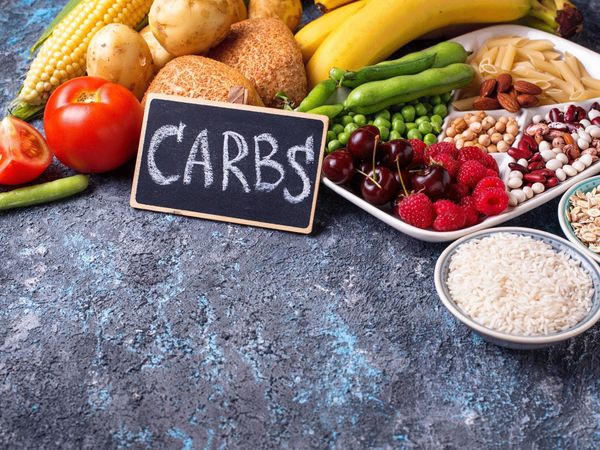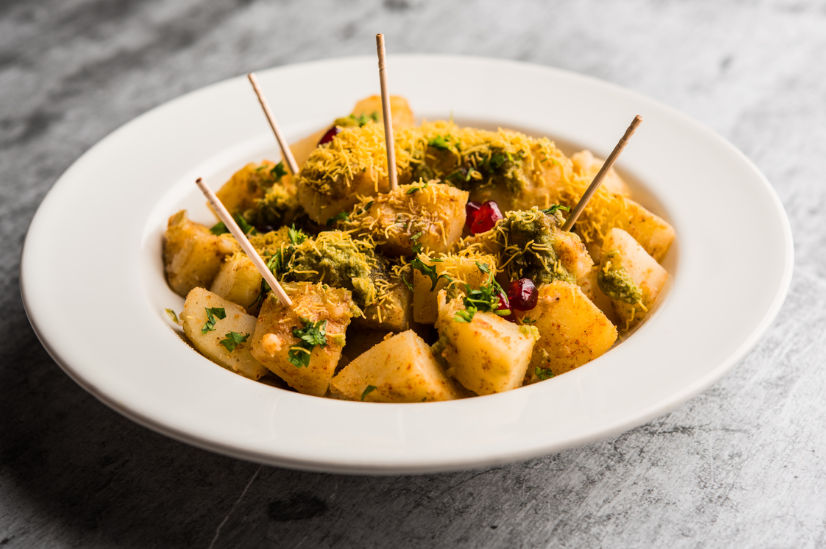
Should you avoid carbs when you’re on a diet to lose weight? 2 healthy Navtratri vrat recipes you can try  |  Photo Credit: iStock Images
- Carbohydrates are a vital part of a well-balanced diet and are the primary source of energy for the body
- Several studies demonstrate that a low-carb diet can be effective for weight loss, although the number of carbs a person needs to eat may vary depending on various factors
- This article reviews how you can make healthier food choices while on a fasting diet to stay healthy and yield optimal results
New Delhi: You may have been advised to follow a low-carb diet especially if you’re trying to shed those extra pounds quickly. Research has shown that reducing the intake of carbohydrates can help control appetite and contribute to better weight loss, perhaps, without the need to count calories. If you’re fasting during the auspicious days of Navratri, chances are you’re wondering whether or not you should eat carbs in order to lose weight.
The fact is, not all carbs are the same. Perhaps, the best diet skill you can possess is being able to understand and identify the difference between ‘good carbs’ and ‘bad carbs’ as well as their impact on health. Not sure what the good or bad carbs are? Does eating carbs while fasting cause weight gain?
What are carbohydrates? What type of carbs should you eat while fasting to lose weight?
Carbohydrates play a vital role in our body as it is an important nutrient source that not only provides energy to muscles and brain but can also effectively help you lose weight and accelerate fitness goals – if you eat the right beneficial carbs. Keep reading for everything you need to know about carbs and weight loss. Here, Gurpreet Kaur, clinical nutritionist, Cloudnine Group of Hospitals, Chandigarh, tells us the two major types of carbs in foods – slow and fast carbs depending on the gylcemic index or GI (the rate at which carbs get digested as compared to glucose secretion) – and how to choose the good, healthy ones for your fasting diet.
Fast digesting carbs, as the name suggests, have a high GI and release energy at a much higher pace, get used quickly which makes you feel hungry often and add to weight gain issues. These include processed foods such as bread, sugars, starchy vegetables, fruit juices, etc. Slow carbs, on the other hand, have low GI and release energy slowly into the body, which helps in maintaining a ‘satisfied’ feeling due to high fibre content. It is important to focus on getting more slow carbs in your diet such as whole grains, seeds and nuts, beans and legumes, vegetables, etc, to help you lose weight and stay healthy.
Slow digesting carb foods to add to your fasting diet for better weight loss
- As you observe a fast, you tend to eat lesser food than usual and be hungry at odd times. But consuming slow carbs foods can help you keep fuller for longer as they take longer to digest and break down.
- Combine high carbohydrates like potatoes and sabudana with other fibrous vegetables like spinach, cabbage, tomatoes, capsicum, bottle guard, etc. Also, try to bake, roast, or grill vegetables instead of deep-frying them.
- Kuttu is a brilliant combination of carbs and protein. It is also rich in vitamin B12 and minerals like phosphorus, magnesium, iron, zinc, copper and manganese. Use it to make chapati instead of gorging on puris.
- Samak rice, also called barnyard millet, is extremely easy to digest and can provide energy as it contains a high amount of fibre, vitamin B12 and minerals like iron and magnesium.
- Don’t binge on puris, sabudana vada, potato chips, and other delicacies as they are loaded with sugar, salt and fats. Instead, opt for antioxidant-rich options like roasted makhana or mixture of nuts (almonds/raisins/walnut)/ baked chips, roasted peanuts, etc).
- Eat plenty of seasonal fruits and vegetables and small frequent meals. This will help maintain blood glucose levels and prevent you from feeling low.
- Drink lots of water and fluids like coconut water, lemon water, and buttermilk without adding sugar. These beverages will keep you satisfied for long time.
Fasting is a very traditional, customary ritual, and most people fast for spiritual purification and there is no denying that if you keep yourself nutritionally in check, it can be therapeutic for the body as it can act as a form of detox and keep you healthy. So, it is significant to choose the right food while you are on a fasting diet to prevent yourself from being deficient in important nutrients which can increase your risk of health problems like weakness, heart problems, skin issues, defective bone growth, etc. Avoiding carbohydrates will be the last thing you need to do during fasting as it provides energy to the brain and muscles and make you energetic and more productive throughout the day. So, make sure you are getting enough of the right kind of carbohydrates, proteins, minerals, and vitamins from different food sources. Also, be vigilant about selecting healthy foods rather than munching on processed foods.
Healthy Navratri fast recipes
While you can gorge on the above-mentioned food items, also try out these healthy recipes:
Sweet potato chaat

The nutrition facts for 1 bowl (about 250 gms) of sweet potato chaat are:
| Calories | 304.5 |
| Carbohydrates | 62.09 gms |
| Protein | 6.42 gms |
| Fats | 10 gms |
| Fibre | 12.32 gms |
Ingredients:
- 2-3 sweet potatoes (boiled)
- A handful of almonds, peanuts and walnuts
- 1 teaspoon cumin powder and black pepper
- 1 teaspoon chia seeds and roasted flax seeds
- Rock salt for taste
- 1 lemon (for juice)
Method:
- Peel the boiled sweet potatoes and cut them into small pieces.
- Now mix the nuts with sweet potatoes.
- Add salt, cumin powder and black pepper to it and mix it properly, add lemon juice also.
- Sprinkle chia seeds and flax seeds and serve immediately.
Buckwheat dhokla
Two pieces of buckwheat dhokla (50 grams) contain the following nutrients:
| Calories | 123 |
| Carbohydrates | 0.23 gms |
| Protein | 4.7 gms |
| Fats | 1.8 gms |
| Fibre | 3.6 gms |
Ingredients:
- 1 cup buckwheat flour
- 1/2 cup sour curd
- 1 /4 teaspoon ginger paste
- Salt to taste
- 1 tablespoon Fresh coriander (grated)
- 1 teaspoon green chilli (chopped)
Methods:
- Clean and wash the buckwheat in enough water only once. Then drain the excess water using a strainer.
- Mix the buckwheat, sour curd and half cup of water in a bowl. Cover it and soak it for at least 4 to 5 hours.
- Now, add green chilli, ginger paste and salt to the batter and mix very well.
- Pour the batter into a greased thali and spread evenly by rotating the thali clockwise. Also, Sprinkle fresh chopped coriander.
- Steam in a steamer for 10-12 min. Or till the Dhoklas are cooked.
- Cool slightly, cut into pieces and serve immediately with green chutney.
Please note: In pregnancy, exercise caution while taking any type of fasts as the baby’s needs are specific and usually fasting is not encouraged. If you are still keen to know how to modify your diet during Navratri, please contact your nutritionist for safe personalized guidance via a video consultation so that you can reach out from the safety and comfort of your homes.
RELATED NEWS
Disclaimer: Tips and suggestions mentioned in the article are for general information purpose only and should not be construed as professional medical advice. Always consult your doctor or a dietician before starting any fitness programme or making any changes to your diet.





